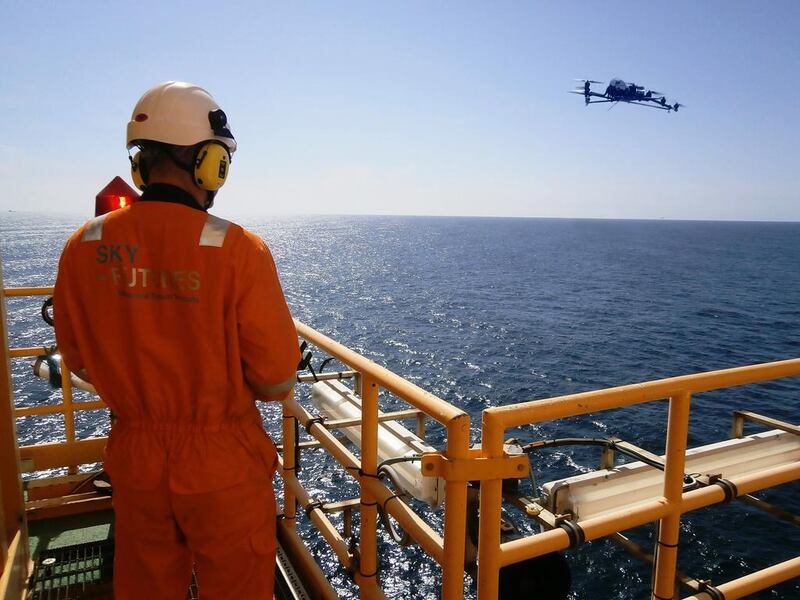Emirates Steel is pioneering the use of unmanned aerial vehicles (UAVs) at its plants, which is helping to save millions of dirhams for the Abu Dhabi-based company.
The country’s largest steel maker is one of the first UAE industrial groups to use drones to inspect live flares at two direct-reduction plants at its complex in Industrial City Abu Dhabi, in Mussaffah. Sky-Futures, a UK company, has deployed a drone on behalf of Emirates Steel to inspect two flares – 70-feet Bunsen burners which flare off gases that are a by-product of the manufacturing process.
Emirates Steel said the technology was part of a project to increase the reliability and life cycle of assets by understanding the current condition of the more inaccessible areas of such plants.
The company will include this inspection technique in its annual maintenance strategy, according to Wael Mosaad, the head of mechanics at Emirates Steel.
“Using the new technology was a breakthrough to increase the assets’ reliability and support the maintenance planning efficiently, and [to] avoid production interruption,” he said.
The UAVs helped the steel plant avoid a five-day shutdown, which is typically required to inspect the flares.
“Typically, the flare is the last item to be taken into shutdown and has to be available for the start up.
Nigel Baxter, the business development director of Sky-Futures said, “Historically, this has meant that these flares had not been inspected since the plant’s start up six years ago.
“They have to throw all the hydrocarbon gases into these flares to burn, and release them into the atmosphere safely, or there will be a pressure build-up.
“Inspections by drone now enable the client to plan a safer and more detailed repair programme, and better understand their integrity and maintenance risks, without shutdown.”
Although Emirates Steel did not provide an amount, a similar project was carried out in the oil and gas sector in Egypt, and one company avoided a five-day shutdown, which resulted in savings of more than US$3.7 million. Mr Baxter said the savings for the Abu Dhabi plant was definitely in the “multimillions”.
The market for drones is skyrocketing. Mr Baxter said that if the right approvals are granted, the market potential for inspection UAVs in the UAE could be $5m this year. That includes industrial operations such as aluminium plants, telecommunication towers, power and cooling systems, and the oil and gas industry.
Sky-Futures has received approval from the General Civil Aviation Authority, which allows for commercial operations such as the steel plant. However, there are additional approvals that have yet to come through for operation in oil and gasfields.
Mr Baxter believes the official go-ahead for the hydrocarbon industry will be granted this year.
Emirates Steel is part of Senaat, the Abu Dhabi government’s industrial holding company.
lgraves@thenational.ae
Follow The National's Business section on Twitter





